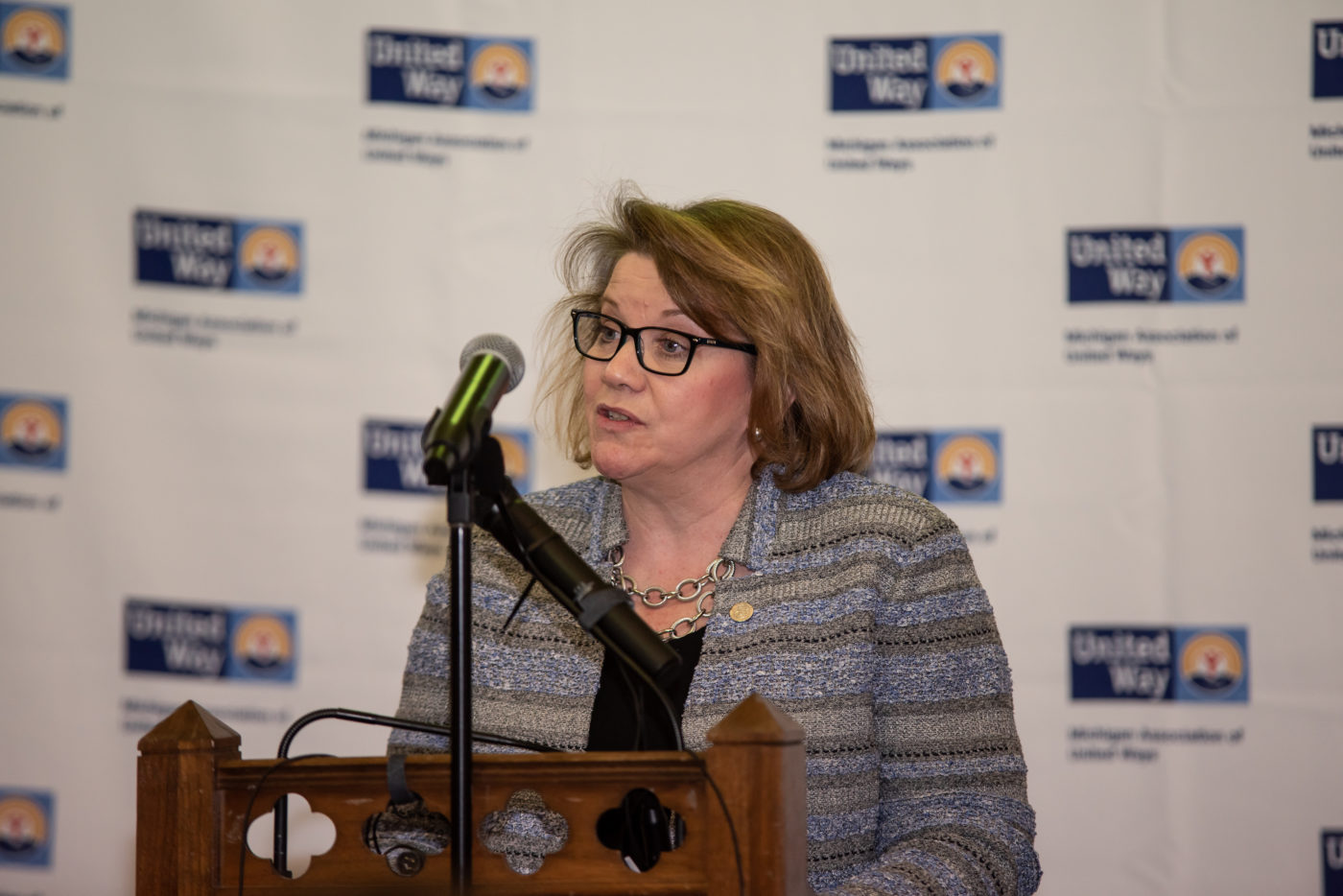United Way report shows nearly half of Michigan families struggle to make ends meet
Published on March 21, 2019 in Basic NeedsFinances

United Way for Southeastern Michigan CEO Dr. Darienne Hudson and staff met with Michigan legislators to discuss how we can work together to create policies that support working families.
The number of Michigan families struggling to make ends meet is growing, according to a new report from United Way. The Asset Limited, Income Constrained, Employed (ALICE) report gives a comprehensive look at Michigan residents who are struggling to make ends meet — despite being employed. United Way produces the report every two years with support from chapters statewide and the Consumers Energy Foundation.
In 2017, the ALICE report showed that 40 percent of Michigan families couldn’t afford basic necessities like housing, child care, food, health care and transportation. The latest report shows that the number of families struggling to afford basic needs has grown statewide — to 43 percent. In Southeastern Michigan, it’s slightly higher at 44 percent.
United Way for Southeastern Michigan uses the report to guide our efforts to advocate for state and federal policies that help families in our region become financially stable.
United Way leaders held a press conference in Lansing in March to announce the report’s findings. We also called on business leaders and legislators to support efforts to serve working Michigan families. Leaders from United Way for Southeastern Michigan — including our President and CEO Dr. Darienne Hudson — also met with legislators to talk about the report’s findings and how we can help working families with policy initiatives.
“The ALICE report demonstrates that we have serious, systemic issues to address if we are to ensure that every family who’s working hard and playing by the rules can sustain that good quality of life here in Michigan,” said House Democratic Leader Christine Greig, representing Michigan’s 37th District, which is comprised of Farmington and Farmington Hills.

Michigan State Rep. Christine Grieg speaks at a United Way press conference in Lansing about the need to help struggling working families.
On the cusp of crisis in Southeastern Michigan
In Michigan, 14 percent of households live in poverty. Another 29 percent struggle to pay for basic needs. That’s 43 percent of families living below the ALICE threshold.
These households earn more than the federal poverty level but less than the cost of living. In Southeastern Michigan, the cost of living increased by 27 percent between 2010 and 2017 for a family of four. For a single adult, it increased 26 percent. This is true despite a low rate of inflation nationwide. In Wayne County, 56 percent of all households fall in the ALICE category or below the poverty line. In Macomb County, 39 percent fall below that threshold; and in Oakland County, 32 percent.
These households — made up of all ages and races — face difficult economic conditions and can’t afford basic necessities. As a result, they are forced to make near-impossible choices between things like rent and food or gas and medicine. This has consequences not just for these households, but for the broader communities as well.
“Any one incident — a car breaks down or a child breaks their arm — can throw these families into a state of financial crisis,” said Kyle DuBuc, director of Policy, Advocacy & Government Relations at United Way for Southeastern Michigan.
An uneven recovery
Despite signs of an improving economy, wages for Michigan workers haven’t kept up.
Sixty-one percent of all jobs in Michigan pay less than $20 per hour. According to the report, a family of four needs to make $30.64 an hour to cover the cost of necessities. A single adult needs to bring home $10.52 per hour.
“The things that we celebrate – the number of jobs and record low unemployment – they don’t really speak to the issues that families are facing and the fact that families are still struggling,” Minority Leader Greig said.
In Wayne and Oakland counties, the cost of living increased by $1,054 and $1,117 respectively over a two-year period. Families in Macomb saw a $680 increase over the same timeframe.
“It’s not about the number of jobs, it’s about the quality of the paycheck,” she added.

United Way for Southeastern Michigan CEO Dr. Darienne Hudson meets with State Sen. Jeremy Moss to discuss United Way’s report on struggling working families.
Informing our agenda
When faced with the complex issue of families who can’t afford basic needs, there’s no one-size-fits-all solution. Because of this, United Way brings people together to advocate for public policies that can help families earn a living wage.
“The fact that such a large percentage of families fall into the ALICE category demonstrates an entrenched, systemic problem,” Kyle said. “There’s clearly not something wrong with the families; there’s something wrong with the policies.”
With expansion of proven-effective programs, families can build a safety net and increase financial stability over time. This includes building on policies like the Earned Income Tax Credit (EITC) and support for early literacy and affordable childcare programs.
“Our priority issues are those that will close the ALICE gap,” Kyle said. “We want to move families from a place of financial crisis to financial prosperity. Then, they can have money set aside to truly get ahead by investing in things like workforce training and saving for their child’s education.”